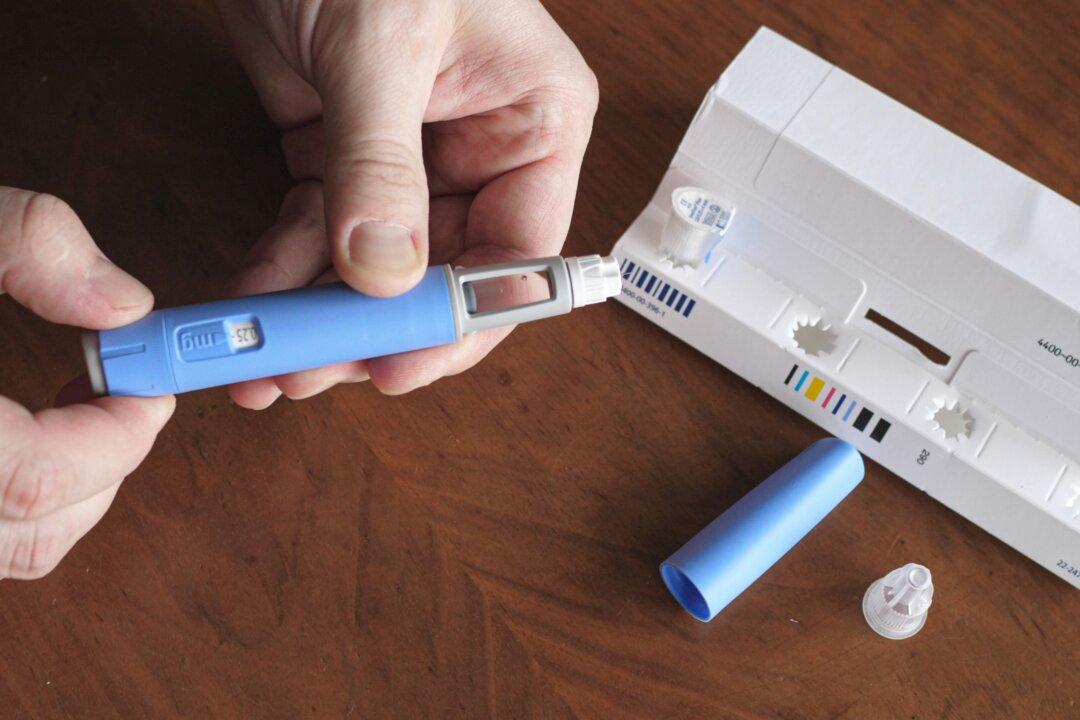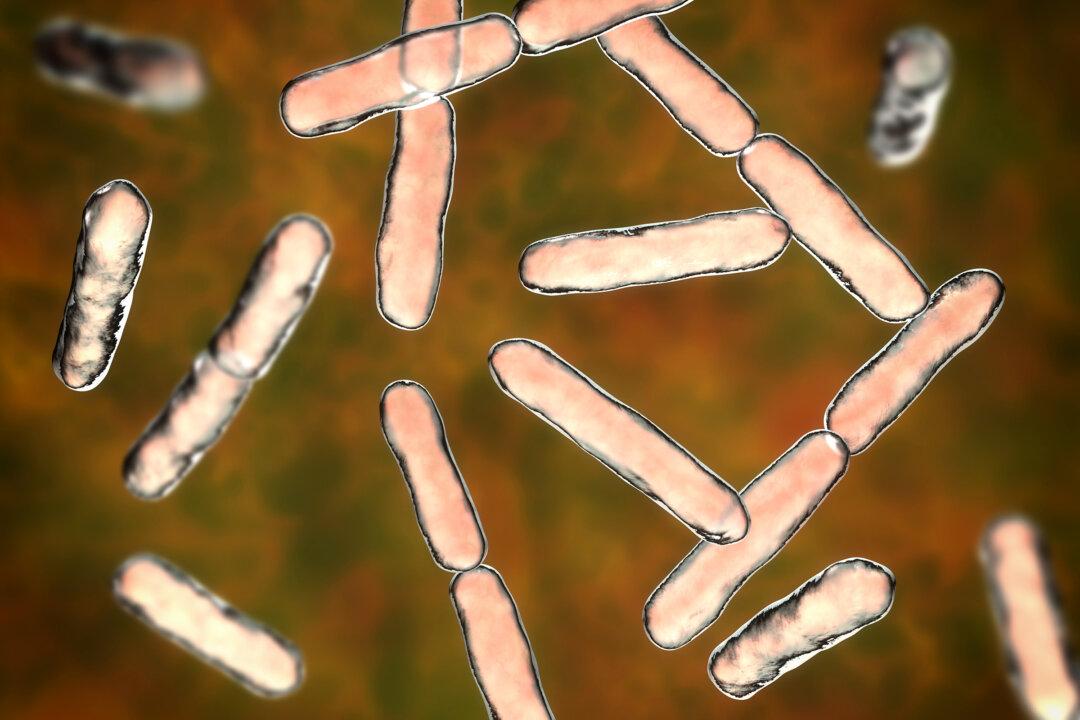The gut microbiome is a complex ecosystem of bacteria, viruses, and fungi that are vital to your brain and body. What you eat can define whether that ecosystem contributes to a state of health or disease.
An unhealthy gut microbiome can undermine a person’s health by contributing to leaky gut, autoimmune diseases, digestive problems, and mental health issues, Dr. Colby Kash, chief operating officer and co-founder of Camelot Biocapital and author of “The Autoimmune Plague: How to Regain Sovereignty Over Your Body and Life,” told The Epoch Times.
A negative gut microbiome profile can lead to an increase in inflammatory signaling, which damages the gut lining, he warned.
“This is often experienced as bloating, constipation, diarrhea, or heart burn,” Kash said. “Chronically, this can result in leaky gut syndrome, when the selective channels in the gut lining become too big and allow larger particles to sneak into the blood stream, initiating a heightened immune response.”
He noted that this process is linked to triggering autoimmune diseases such as rheumatoid arthritis, lupus, and Crohn’s disease. Studies have also shown that the
gut–brain axis plays a critical role in mental health and an unhealthy gut microbiome can contribute to mental health issues such
as depression and
anxiety.
Food and Drink That Negatively Affects Microbiome
Certain foods and beverages can negatively affect the gut microbiome, leading to an imbalance of microorganisms, inflammation, and even disease.
Processed Foods
Western dietary patterns, which contain large amounts of processed food,
might create imbalances in the digestive system by affecting gut bacteria.
Research finds that consuming a diet high in processed foods
can lead to a decrease in beneficial bacteria while increasing harmful bacteria in the gut. These foods are usually high in sugar, salt, and unhealthy fats.
A study
published in Nature found that a diet high in processed foods can lead to an increase in the abundance of certain bacteria, such as
Bacteroides fragilis, which is associated with inflammation and inflammatory bowel disease.
Sugar
Eating too much sugar can also disrupt the gut microbiome by affecting the balance between
pro- and anti-inflammatory gut bacteria.
Research also finds that a high-sugar diet
unbalances the microbiome, so the body makes fewer of the gut immune cells that help to prevent pre-diabetes and weight gain.
A study published in the journal
Cell Host & Microbe found that mice fed a high-sugar diet had a less diverse gut microbiome and more harmful bacteria than mice fed a low-sugar diet.
Artificial sweeteners, such as saccharin and aspartame, also have been shown
to damage the gut microbiome.
A
study found that mice fed saccharin had a less diverse gut microbiome and an increased risk of glucose intolerance, a condition that can lead to Type 2 diabetes.
Alcohol
Drinking too much alcohol can disrupt the gut microbiome by altering the balance of bacteria and promoting the growth of harmful bacteria.
A study published in
Gut Microbes found that chronic alcohol consumption may lead to an increase in harmful bacteria, such as Enterobacteriaceae, and a decrease in beneficial bacteria, such as Lactobacillus and Bifidobacterium.
Antibiotics (and Antidepressants)
Although antibiotics can be lifesaving medications, they also disrupt the gut microbiome by killing beneficial bacteria.
Research has shown that a
course of antibiotics can significantly decrease the diversity of the gut microbiome.
A recent
study found that antibiotics can lead to a decrease in the abundance of beneficial bacteria, such as Bifidobacterium and Lactobacillus, and an increase in harmful bacteria, such as antibiotic-resistant Clostridium difficile, more commonly known as “C. diff.”
Research also finds that exposure to antibiotics is
a risk factor for developing inflammatory bowel disease (IBS).
“Restoring the gut microbiome after completing a course of antibiotics is essential to preventing problems down the road,” Kash said. “In general, it can take several weeks to several months for the gut microbiome to fully recover after a course of antibiotics.”
Researchers have also begun looking into a similar effect linked to antidepressants. A
study published in Scientific Reports in 2020, for example, linked several antidepressants to “a significant reduction in bacterial viability” across several bacterial strains.
“Our findings demonstrate that gut microbiota could be altered in response to antidepressant drugs,” the researchers concluded.
Maintaining a Healthy Gut Microbiome
One of the best ways to keep the gut microbiome healthy is by incorporating
plant-based foods into your diet.
Fruits and vegetables are rich in fiber, which is
essential for maintaining a healthy gut microbiome. Fiber helps feed the beneficial bacteria in the gut, promoting their growth and diversity. Aim to eat a variety of fruits and vegetables every day to ensure that you are getting a range of nutrients and fiber.
Whole grains, such as brown rice, quinoa, and whole wheat, are also rich in fiber and help promote the growth of
beneficial gut bacteria. Whole grains also
contain prebiotics, indigestible fibers that help feed probiotic bacteria in our gut.
Legumes, including beans, lentils, and chickpeas, are excellent sources of fiber, protein, and other essential nutrients. They are also
rich in prebiotics.
Besides diet, it’s important to follow an all around healthy lifestyle, Kash said.
“Taking care of the gut microbiome through healthy lifestyle choices such as a balanced diet, regular exercise, and stress management can have significant positive effects on an individual’s overall health and well-being.”




